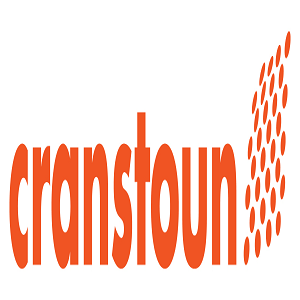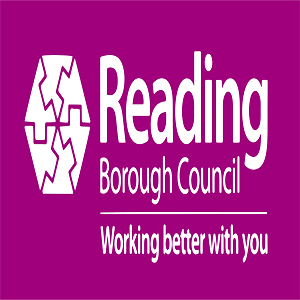Drug & Alcohol Rehab in Berkshire

How Does Rehab Work?
Rehab involves many strategies that are created to address individual addiction with support, wellness methods, and steps to restoring balance. Clients are introduced to addiction treatment programmes that are led by experienced and professional therapists. Along with therapeutic intervention, individuals can benefit from the support received from certified counsellors and group therapy. While free outpatient services do exist, you can not expect the same level of care as those offered privately. For those who enter an inpatient rehab programme, it requires that you remain inside the centre or the facility for the duration of treatment. Outpatient services are a choice for those with less severe drug or alcohol dependencies. You will meet with a counsellor while keeping up with work commitments and remaining at home.
What Happens During Residential Rehab?
When you are ready to enter rehab for drug and/or alcohol addiction, it is a courageous step towards recovery. Although achieving balance and breaking the cycle of dependence takes some work, it can be achieved. To assist you to make an informed decision regarding rehab, we look at the options available and what to expect during rehab.
Rehab occurs in stages. It starts with a medical assessment. Individuals must be professionally assessed to help staff understand the nature of your dependence, its history and comorbid disorders (such as anxiety or schizophrenia). The information obtained from the assessment is used to create a bespoke therapy programme for you. Because every person is different, a personalised treatment plan will help provide a more tailored programme that meets your needs and requirements.
The next step of a rehab plan is detoxification. Detoxing from substances requires the removal of the drug or alcohol from the body, typically over a period of time that limits withdrawal symptoms. Detox should ideally be monitored professionally to assist those with withdrawal symptoms. When the substance is removed from your body, the next stage of treatment begins (therapy).
Rehabilitation includes meeting with a counsellor for private & group sessions, participation in skill building activities as with an inpatient or residential rehab, or group meetings that are common with outpatient 12 Step programmes. We explore the different phases of rehab in greater detail.
1. Assessment

A complete medical assessment is an initial step to receiving the appropriate treatment in rehab. If you are looking into residential rehab, you can expect a telephone assessment by an admissions coordinator. The telephone assessment will provide the treatment facility with the information needed to develop a unique treatment plan. The medical support staff will also have the information to manage individuals through the phase of detox.
When you’re ready to pursue treatment for drug and alcohol addiction, a medical assessment needs to be completed. Assessments will guide therapy because it provides staff with the information, they need to develop a tailored treatment plan or advise on the appropriate intervention.
2. Detox

Detox will be completed before therapy commences. It is often performed in a residential clinic where individuals can receive 24/7 care to ease withdrawal symptoms.
The reason medical detoxification from substances is advised is owed to the difficulties and the nature of withdrawal symptoms that may occur during this time. Without reliance on a professional service and medical attention, the risk of relapsing is heightened. Individuals who receive detox and an assessment will be required to participate in a therapeutic programme that involves residential rehab or outpatient programmes.
3. Therapy

Therapy includes the one-on-one and group sessions you will attend with a qualified therapist, counselor, and support staff. Treatment is provided in both a residential rehab or as part of an outpatient programme. The direction for therapy will depend on individual circumstances.
Step by Step Process for Residential Rehab
To understand your medical and mental health history.
Arrange a suitable date to begin your journey to recovery.
Begin the managed withdrawal process from substances including alcohol.
To understand the root cause of addiction and how to overcome it.
Aftercare is provided to help manage the risk of relapse.
To help heal the wounds that addictive behaviour has caused others.
Find your Nearest Rehab Centre near Berkshire
The nearest rehab centre is Yeldall Manor.
Address: Yeldall Manor, Blakes Ln, Hare Hatch, Reading RG10 9XR, United Kingdom
Call 0333 4444 432 to discuss your alcohol or drug rehab requirements and any other questions you may have about the process of residential rehab.
Outpatient Addiction Services in Berkshire
Inpatient or outpatient options for dependence can be determined by your budget requirement & life circumstances. Nevertheless, it is an individual process that requires full commitment and awareness to succeed. To help you understand these different processes, we look at outpatient addiction services compared to residential rehab.
When you enter into an outpatient service, you will be required to meet with a therapist, support counsellor, or group worker once or twice every week. Rather than stay away from home, you can continue to attend to work commitments and care for your family while you receive therapy for dependence.
PrivateOutpatient care involves individual counselling with a therapist. You are expected to travel to the therapist and engage in hour-long treatment sessions. Apart from private therapy, there are also free services from charities and government-backed organisations that address drug and alcohol addictions.
The Benefits of Outpatient Services
Private Outpatient services will include individualised care strategies to address the specific problems and challenges that are maintaining addiction. Outpatient support is commonly sought by individuals who have family commitments or those who need to work full-time. Outpatient programmes are more cost-effective than residential treatment.
The Challenges of Outpatient Services
Because one remains in the same environment and exposed to the same triggers, there may be a higher risk of relapse and failure to complete an outpatient programme. Although the NHS and other UK-based charities provide free addiction services, treatment is not tailored to the individual’s needs and waiting lists are to be expected.

How Much Does Rehab Services Cost in Berkshire?
You can expect to pay between £1500 – £4000 per week for residential rehab. If you cannot afford a private addiction plan, you can rely on free and more affordable recovery options to address your drug or alcohol issues. There are a number of organisations that assist individuals with free and affordable services throughout the UK.
Fortunately, free programmes are offered by organisations including the NHS and charities such as Turning Point (that requires self-referrals). Other organisations that provide free and community-based therapies for drug and alcohol addiction include Alcoholics Anonymous (AA), Cocaine Anonymous, and Narcotics Anonymous.
Support Groups in Berkshire

Streatley Lunchtime Daily Reflections
The Morrell Room, Church LaneRG8 9HT

Goring-on-Thames
High St, Goring, Reading RG8 9AG

Reading Chair Online
English Martyrs Church, Liebenrood Rd RG30 2EB
The Pros and Cons of Seeking Treatment in Your Local Area
Pros
1. You are familiar with the area which may provide a layer of comfort/safety.
2. Loved ones can easily travel to visit or are close by.
3. You may save on the costs of travelling long distances for addiction treatment, or free services may only be offered in your area of residency.
Cons
1. A local environment means access to drug dealers or other triggers. This is more of an issue if you decide upon outpatient programmes.
2. Not considering locations outside your area could mean a missed opportunity for more valuable and rewarding programmes.
3. Addiction treatment services that are nearby don’t always provide the best standard of treatment.
In the event you are unsure about a particular addiction treatment service, you can look to the CQC website for more information including a rating of that service.


